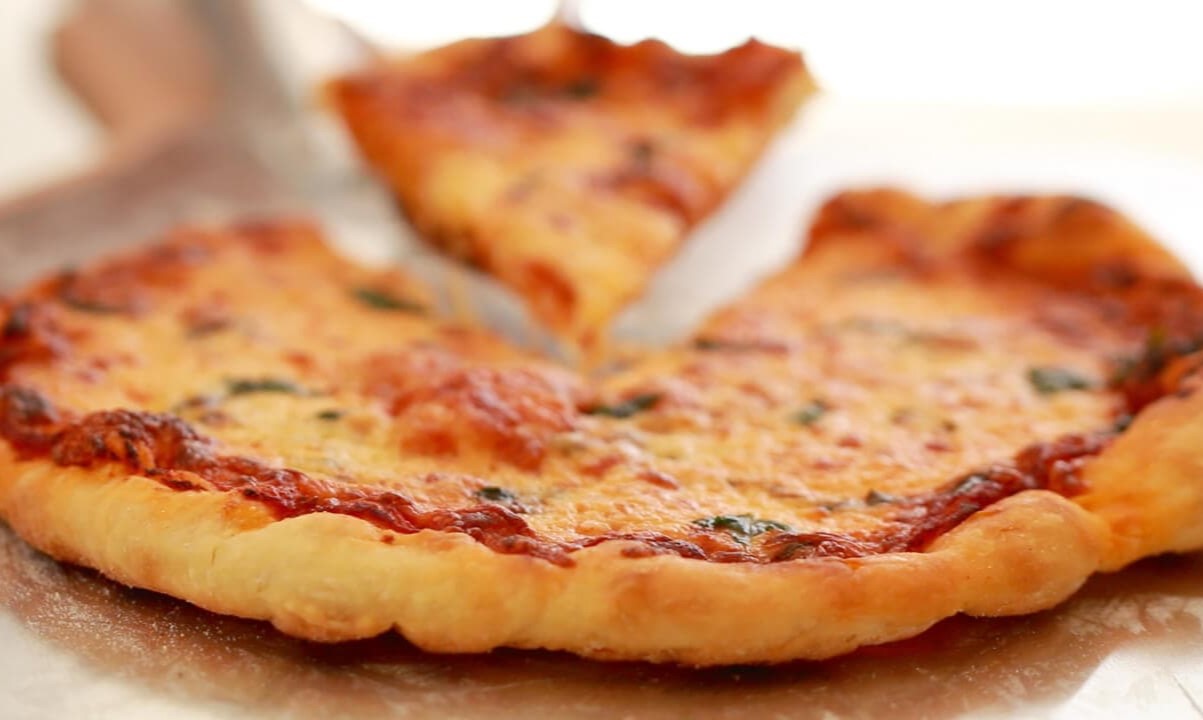
When it comes to enjoying a delicious pizza, the crust plays a crucial role in the overall taste and texture of the pie. Whether you prefer a thin and crispy crust or a thick and doughy base, understanding the nutritional aspects of pizza crust is essential for making informed dietary choices. In this article, we delve into the fascinating world of pizza crust nutrition facts, uncovering valuable insights that can help you make healthier decisions without compromising on flavor. From the calorie content to the macronutrient composition, we'll explore the key nutritional components of pizza crusts, shedding light on both traditional and alternative options. Whether you're a pizza enthusiast seeking to balance indulgence with wellness or simply curious about the nutritional impact of your favorite food, this comprehensive guide will equip you with the knowledge needed to savor every slice with confidence. So, let's embark on a flavorful journey through the realm of pizza crust nutrition and discover the savory secrets hidden within every bite.
Key Takeaways:
- Pizza crust provides energy, fiber, and essential nutrients like protein and B vitamins, supporting a healthy digestive system and overall well-being.
- Understanding pizza crust nutrition facts empowers you to make mindful dietary choices, contributing to a balanced and health-conscious lifestyle.
Pizza Crust is a Source of Carbohydrates
Pizza crust is a significant source of carbohydrates, providing the body with the energy it needs for various functions.
It Contains Dietary Fiber
Dietary fiber, essential for digestive health, is present in pizza crust. Fiber aids in maintaining a healthy digestive system.
Pizza Crust Contains Protein
Protein, crucial for muscle repair and growth, is found in pizza crust, contributing to its nutritional value.
It is a Source of B Vitamins
Pizza crust contains B vitamins, including thiamine, riboflavin, and niacin, which play vital roles in energy production and metabolism.
Pizza Crust Contains Minerals
Essential minerals such as calcium, iron, and magnesium are present in pizza crust, supporting various bodily functions.
It Provides a Small Amount of Fat
Pizza crust contains a modest amount of fat, contributing to the overall calorie content of the dish.
It Contains Sodium
Sodium is present in pizza crust, and its consumption should be moderated to maintain a balanced diet.
Pizza Crust Contains Potassium
Potassium, important for heart health and muscle function, is found in pizza crust, adding to its nutritional profile.
It Provides Energy
Pizza crust serves as a source of energy, supplying the body with the fuel it needs for daily activities.
It Contributes to Caloric Intake
The caloric content of pizza crust should be considered when managing overall calorie intake and dietary balance.
Pizza Crust Contains Iron
Iron, essential for oxygen transport in the body, is present in pizza crust, contributing to overall nutritional intake.
It Contains Essential Amino Acids
Pizza crust contains essential amino acids, which are the building blocks of protein and play crucial roles in various bodily functions.
Pizza Crust Contains Vitamin D
Vitamin D, important for bone health and immune function, is present in pizza crust, adding to its nutritional value.
It is Relatively Low in Sugar
Pizza crust typically contains a relatively low amount of sugar, contributing to its overall nutritional profile.
Pizza Crust Contains Choline
Choline, important for brain health and metabolism, is found in pizza crust, providing additional nutritional benefits.
It Provides Saturated Fat
Pizza crust contains saturated fat, and its consumption should be monitored as part of a balanced diet.
Pizza Crust Contains Zinc
Zinc, essential for immune function and wound healing, is present in pizza crust, contributing to its nutritional content.
It Contains Folate
Folate, important for cell division and DNA synthesis, is present in pizza crust, adding to its nutritional value.
Pizza crust plays a significant role in the overall nutritional composition of a pizza, and understanding its impact on health is crucial for making informed dietary choices. Incorporating these 18 pizza crust nutrition facts into your knowledge base can empower you to make mindful decisions about your food intake, contributing to a balanced and health-conscious lifestyle.
Conclusion
In conclusion, understanding the nutrition facts of pizza crust is essential for making informed dietary choices. By analyzing the calorie content, macronutrient composition, and micronutrient profile, individuals can better manage their overall calorie intake and nutrient consumption. Whether opting for a traditional, thin-crust, or whole wheat pizza base, being mindful of portion sizes and toppings can significantly impact the nutritional value of this beloved dish. By incorporating this knowledge into meal planning, individuals can savor their favorite pizza variations while maintaining a balanced and health-conscious diet.
FAQs
What is the nutritional difference between thin-crust and thick-crust pizza?Thin-crust pizza generally contains fewer carbohydrates and calories compared to thick-crust options. However, thick-crust pizza may offer slightly higher protein content due to the increased dough volume.
How can I make my pizza crust healthier?To enhance the nutritional profile of pizza crust, consider using whole wheat flour or incorporating alternative flours such as almond or cauliflower. Additionally, reducing the amount of added salt and sugar in the dough can contribute to a healthier crust option.
Was this page helpful?
Our commitment to delivering trustworthy and engaging content is at the heart of what we do. Each fact on our site is contributed by real users like you, bringing a wealth of diverse insights and information. To ensure the highest standards of accuracy and reliability, our dedicated editors meticulously review each submission. This process guarantees that the facts we share are not only fascinating but also credible. Trust in our commitment to quality and authenticity as you explore and learn with us.
